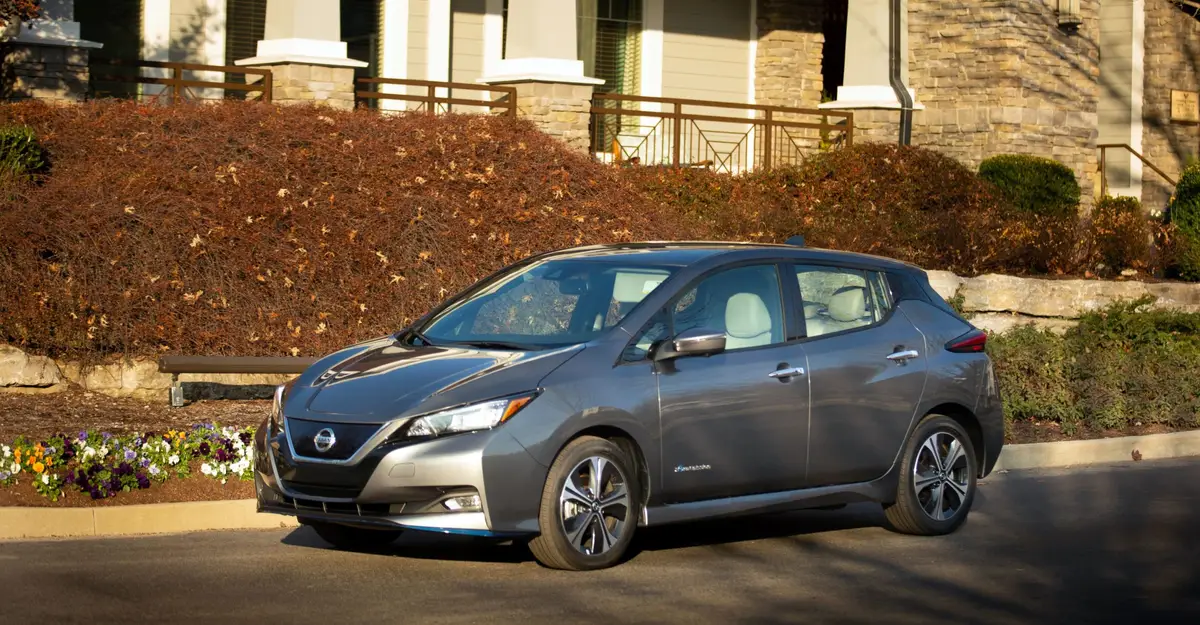Nissan has issued a recall affecting more than 19,000 units of its Leaf electric vehicle, citing a risk of battery overheating that could increase the possibility of fire. The recall covers model years 2021 and 2022 of the Leaf hatchback, and centres on excessive lithium deposits forming inside the battery cells during DC fast charging. Those deposits may lead to abnormal heat generation, which poses a safety hazard if left unaddressed.
What Happens in the Affected Vehicles
The problem stems from the buildup of lithium within the battery cells over repeated fast-charging cycles. Under certain conditions, those lithium deposits can create hotspots and cause the battery to heat disproportionately. In extreme cases, that heat can trigger thermal runaway or even lead to fires. While Nissan has not reported widespread incidents of fires tied to this defect so far, the risk is deemed serious enough to prompt a recall.
Nissan’s solution is to push a software update to the battery management system. This update is intended to better monitor battery temperatures and adjust charging parameters to reduce heat buildup. Owners of affected vehicles are being asked to refrain from using DC fast charging until the software remedy has been installed.
Timeline & Owner Notifications
According to Nissan, initial notification letters to owners are expected to be mailed beginning October 24. A follow-up letter will be sent once the fix becomes available and owners are scheduled for the software update. The recall is referenced by R25C8.
Owners who wish to check whether their vehicle is affected can use the National Highway Traffic Safety Administration’s (NHTSA) recall lookup tool by entering their Vehicle Identification Number (VIN). They may also contact Nissan’s recall hotline (800-867-7669) or NHTSA’s vehicle safety line (888-327-4236) for more information.
Implications & What Owners Should Do
If you own a 2021 or 2022 Leaf, this recall warrants immediate attention. Until the software update is applied, you should avoid DC fast charging entirely. Use slower Level 1 (120V) or Level 2 (240V) charging instead, which generates less heat and reduces the risk of triggering the fault.
Because EV batteries are complex systems, their management and thermal controls are critical for safety and longevity. A software update may not resolve every potential issue, so owners should remain vigilant: monitor for warning messages, battery temperature alerts, or unusual charging behaviour. If something seems off, contact a Nissan dealer promptly.
This recall underscores a broader trend in EV reliability: as manufacturers push the limits of battery performance and fast-charging capability, edge-case thermal issues become more likely. It highlights how essential it is for automakers to maintain rigorous quality control, diagnostics, and software safeguards.
Broader Context: EV Recalls & Battery Safety
Electric vehicle recalls are becoming more visible, particularly when battery systems are involved. Batteries face stresses — from temperature fluctuations to repeated high-power charging — that internal combustion engines and simpler systems don’t. Because of this, defects in battery chemistry or management software often carry more serious safety implications.
Manufacturers typically issue recalls when a defect poses risk to safety or when a software or hardware fix becomes feasible. In this case, Nissan appears to believe a software solution will mitigate the excess heating risk without requiring a full battery hardware replacement.
For EV owners and prospective buyers, this recall is a reminder to:
- Keep firmware and software up to date (from the OEM).
- Pay attention to recall notices and safety bulletins.
- Be cautious about heavy use of fast charging, especially under extreme ambient temperatures.
- Understand battery warranties and coverage.
Final Thoughts
The recall of 19,000+ Nissan Leaf EVs for overheating battery issues is a significant development in EV safety. While the risk of fire may be relatively rare, the stakes are high when battery failures occur. Owners of affected vehicles should act quickly to apply the software update and avoid fast charging until the fix is installed.
For the broader EV community, this reinforces that, even though battery technology has advanced dramatically, vigilance and smart vehicle management are still essential. As electric mobility continues to mature, the balance between performance, fast-charging convenience, and safety will remain a central challenge for automakers and consumers alike.
References
- Cars.com: “Nissan Recalls 19,000-Plus Leaf EVs for Overheating Battery” Cars.com
- National Highway Traffic Safety Administration (NHTSA) — recall lookup tool
- Nissan Owner Communications & Recall Notices


